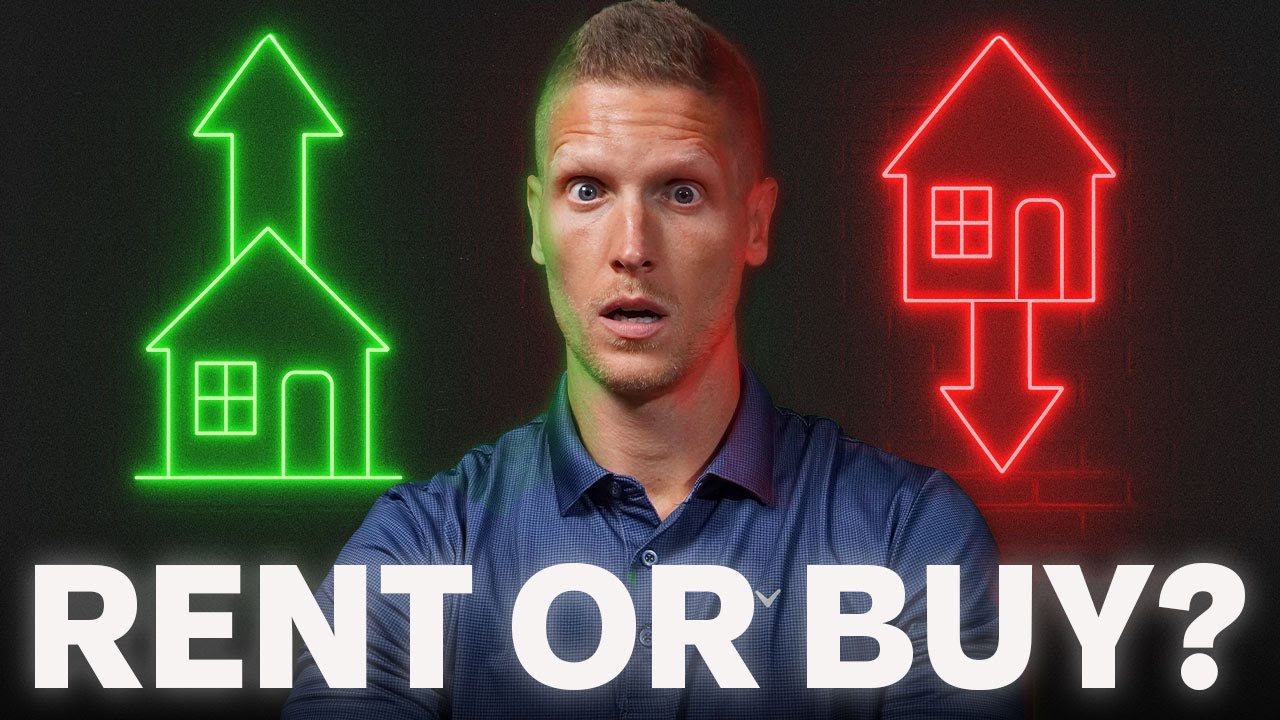The next question we would encourage you to think about before buying is, do you have really good job security? One other thing that makes us nervous in this amazing technology-driven world that we're in is that people move a lot, right? Like, it's not uncommon for us to have clients who get a job in some other part of the country and one of the very first things that they do is they get a job and they really relocate, and they immediately buy a house. While that can work and that can be an okay thing, it can also be really, really risky.
You want to make sure that before you're signing on the dotted line and saying, "I'm going to pay for this piece of real estate for the next 15 years or for the next 30 years," you feel pretty confident that you're going to be in the job that you're in long enough to pay for that or that if you're not going to be in this job, you will have the ability to be gainfully employed to be able to afford that mortgage.
If you're in some high-flying sales field or high-flying tech field and your compensation is all over the place and maybe the startup is going to make it or maybe the startup's not going to make it, buying real estate may not be the thing for you in this season, unless you know that you know that you know you can keep the payment inside the realm of affordability. I would just reverse engineer this the back way and ask yourself, "How stable is your job?" Because that's something that I worry about with a lot of people. I mean, because I work with a lot of technology people, IT people, and we all know this is a rough year if you work at any of these types of jobs. There's a lot of reduction in force going on, and here's a reality that I've seen: I live in a pretty nice neighborhood, and I see with some of my neighbors to get to the levels of income some of these people have.
If you lose your job, there's a chance that that's such a senior position, it's not going to be a work from remote type situation. A lot of people are to replace the same level of income at that high, you know, once you're beyond six figures and even up into executive level, you go relocating. You need to think about how safe is my job because more than likely, if you lose your job, you might buy into a higher price of a living area for this new job, and then that job doesn't work out. It's not like you just go down the street and get another job at that price. It's a good chance you might have to move your whole family. And if you're getting squeezed into selling in a market that's just not as frothy and liquid as it's been in the last two to three years, you're going to have a compounded negative impact. You're going to be looking for a job plus having to make hard decisions, and desperate decisions are when we make bad mistakes because you make them out of "you have to do it" versus "it's a good decision for you and your personal finances."
The next question we want you to answer is: "Do I have stable cash flow?" Now, we already talked about job security. Do I feel reasonably assured that I'm going to have a job or be gainfully employed for the foreseeable future? Now, it's stable cash flow. What other debt service do I have? Do I have a lot of student loans and am servicing them? Do I have auto loan debt? Do I have credit card debt? Do I have enough left over at the end of the month or enough put aside at the beginning of the month so I know I'm going to keep my house inside of the affordability realm when it comes to satisfying that mortgage payment? Without stable cash flow coming in, it can be pretty crazy, pretty scary to now have a mortgage payment on the books that you don't have a choice, you've got to pay it every month or else you go into a battery.
Well, it also lets you plan ahead on the cash flow because you still want to create inevitable automatic wealth, which means you have an automatic saving and investment plan that's going into place. If you only invest what's left over, that's going to be a policy of failure. But also having a stable cash flow also goes into effect because when you and Daniel were talking about this earlier, is that a lot of times, especially if you're a younger person, your income in the next three to four years could look completely different than it does now. So, I would encourage you, we always talk about the 25% of your income is kind of your threshold or boundaries on that. I do think in these unique times where housing is expensive, you can look ahead as long as you're not getting overconfident.
The last question I want you to answer before buying a house is: what's your credit score? If you're someone out there, especially with interest rates as high as they are right now, you want to have the best credit score possible so that you can get the best rate possible. Well, do you know what your credit score is? Do you know the five things that go into it? If you don't, go check us out on Instagram or TikTok. We just recently did a reel showing you what the five things you need to work on are. This can have a huge impact. Can it, Brian? Yeah, it definitely can. You can get squeezed on this. I've made a lot of mistakes with my credit score. My first home, I'll just go and lay these out really quick. I opened a store credit card disaster right before we were pulling because I was going to furnish it. It was logical, right? Now, for me, a 10 to 15% discount, you offer me a deal on it, and back then, younger Brian, broke Brian was like, "Yeah, those guys." I already felt like I was overpaying. The second thing I screwed up is I didn't understand how credit utilization and how the credit rating agencies looked at it. So I thought, "You know what would make them look really good at me? If I had less access than I don't even need." The debt credit card, so I actually lowered some of my credit limits. I called and requested that they lower the credit limit, not understanding how credit scores worked.
So it's, um, don't make those mistakes. I've had to remind some of my coworkers as they're buying their first homes. I was like, "You know, because they're trying to go to the new credit card rewards and they want to close other credit cards that aren't being used. I'm like, "If it's your oldest credit card, do not close them. Even if it's for an amusement park that you don't even go to anymore like I did with the Six Flags credit card. It was my first one. I'm truly a cartoon character, but unfortunately, I was able to change it into something else. But don't mess up those credit mistakes as you're getting into your home buying season.
So we think that these are eight great questions that you can answer before buying a home, and if you can answer these questions well, you'll know, "Okay, yes, I should buy a home." Whether the crash is coming or whether house prices are going to go up, and it's more dependent upon these factors. We thought these were so good, we wanted to create a free resource for you. So, if you've not been to our resource page, go to moneyguy.com/resources, and you can download this
home buying checklist. Maybe you have someone in your life, a child, a grandchild, a friend, a colleague thinking about buying a home. Go download this, send them a copy of it, tell them about the show, have them listen to this so that even in this unique and difficult and trying home buying market, they can still make a wise, educated decision when it comes to their personal finance.
If you want to take your finances to the next level, check out our courses
here.











